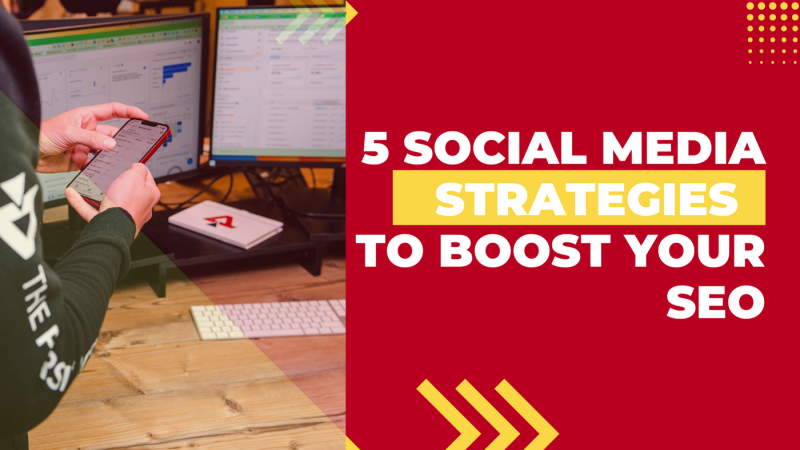Is your business website being found by potential customers? If not, you may need to start monitoring your search engine performance. This guide provides everything you need to get started with search engine monitoring, from understanding the basics to setting up your first campaign. So what are you waiting for? Get started today!
What Is Search Engine Monitoring
Search engine monitoring is the process of tracking and analyzing your website’s visibility and performance on search engines. This includes tracking your website’s ranking for specific keywords, monitoring your website’s organic traffic, and analyzing your website’s click-through rate (CTR) and other key metrics.
Why Is Search Engine Monitoring Important
There are two main reasons why search engine monitoring is so important.
- First, it allows you to track your progress over time. By seeing how your website is performing for specific keywords on a regular basis, you can get a better idea of which SEO strategies are working and which ones aren’t.
- Second, search engine monitoring can help you identify potential problems before they cause too much damage. For example, if you suddenly notice a drop in rankings for one of your keywords, it could be an indication that something has changed with the search algorithm or that one of your competitors is doing something that’s giving them an advantage.
Either way, it’s important to investigate the issue as soon as possible so that you can take the steps to correct it.
How To Monitor Your Search Engine Rankings
Now that we’ve gone over why search engine monitoring is important, let’s take a look at how to do it effectively. There are two main methods for tracking your rankings: manual checks and using rank tracking software.
Manual Checks
Manual checks involve going onto a search engine like Google or Bing and typing in the keyword that you want to track. For example, if you own a website about cats, you might want to track the keyword “cat food.” Once the results page loads, scroll through until you find your website and note its position.
Then, repeat this process on a regular basis (we recommend it at least once per week) and compare your website’s current position with its previous positions. If you notice any major changes, investigate the issue further to try to determine the cause.
Rank Tracking Software
The other option for tracking your rankings is to use rank-tracking software like SE Ranking or SERPWatcher. These tools automate the process by regularly checking your rankings for you and then compiling the data into easy-to-read reports.
This saves a lot of time compared to manual checking and also provides more accurate results since rank trackers use multiple data points (like location and browsing history) when retrieving SERP results.

Tips For Using Search Engine Monitoring
It’s important to regularly monitor your search engine results in order to stay on top of any mentions or changes in your online presence. Here are a few tips for using search engine monitoring effectively:
- Set up daily or weekly alerts for your brand names, important keywords, and variations on your name or company.
- Use a tool that tracks not just the top few pages of search results, but all pages where you appear.
- Regularly check the images and video results as well as the standard web pages.
- Make sure to monitor both organic search results and paid advertisements.
By following these steps, you can ensure that you have a comprehensive understanding of your online presence and any potential areas for improvement.
Learn More: Marketing Tips for Local Business
What Are The Search Engine Results Pages
A search engine results page (SERP) is a page displayed by a search engine in response to a query by a searcher. The main component of the SERP is the search results, which are generally presented in a list. The results may also include ads, videos, images, and other types of content on web pages.
The purpose of the SERP is to deliver the best possible answer to the searcher’s query. To achieve this, the search engine must understand the searcher’s intent and match it to the most relevant results.
There are a number of factors that go into ranking the results on a SERP, including:
- The quality of the content
- The relevance of the content to the query
- Authority of the content
- Number of other websites linking to the content
- User’s search history
Search Engine Optimization Tool
There are a number of different tools that can be used for search engine optimization (SEO). These include:

Google Analytics: These tools help you to analyze your content to ensure that it is optimized for your target keywords.
Keyword Research Tools: These tools help you to find the right keywords to target for your SEO campaign.
Rank Tracking Tools: These tools help you to track your progress in the search engine results pages (SERP).
Link-building Tools: These tools help you build links to your website to improve your SEO.
Google Search Console: This is a free tool from Google that provides data and insights about your website’s performance in Google searches.
Bing Webmaster Tools: This is a free tool from Bing that provides data and insights about your website’s performance in Bing searches.
Yoast SEO: This is a WordPress plugin that helps you to optimize your website for search engines.
Learn More: What is PPC? Your complete guide to PPC (pay-per-click) advertising

Disadvantages Of Search Engine Monitoring
There are a few potential disadvantages to search engine monitoring.
- First, it can be time-consuming to track all the different metrics associated with your website’s ranking. This is especially true if you are tracking multiple websites or if you have a large website with many pages.
- In addition, search engine monitoring requires a certain level of technical expertise and understanding of how search engines work.
- Finally, some businesses may find that the cost of search engine monitoring tools is prohibitive. While there are many free tools available, some of the more sophisticated tools can be quite expensive.
FAQs
Can I learn SEO On My Own?
Yes, you can learn SEO on your own. However, it will take some time and effort to do so. In addition, you will need to keep up with the latest trends in SEO to ensure that your website is ranking well in the search engines.
What Is The First Step To Start SEO?
The first step to starting SEO is to research the right keywords for your website. Once you have a list of keywords, you can start optimizing your website for these terms.
Learn More: How Long does SEO Take?
Wrapping Up
As you can see, search engine monitoring is a complex but important process for any business that wants to stay ahead of the competition. By using the tips and tricks in this guide, you can be sure that your website is always appearing in search results and driving traffic to your site. Thanks for reading!





